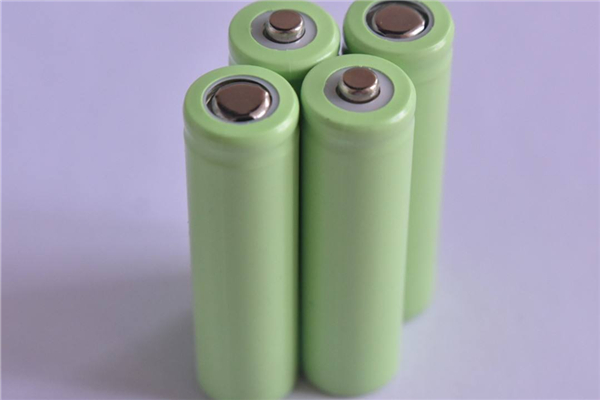Types of Lithium Battery Systems
Oct 26, 2019 Pageview:1429
Lithium-ion batteries are the most used in most areas of our daily lives. Almost all of our devices, such as smartphones, laptops, or even children's toys cannot work without the use of these batteries. These lithium-ion batteries have become so important in the area of electromobility because they are the battery of choice for most electric vehicles today. The battery has high specific energy which gives it an edge over several other types of batteries.
There are several types of lithium-ion batteries, and the primary difference between all of them is in the materials used in the cathode. These different types of lithium-ion batteries also provide users with different functions with tradeoffs between different specific power, durability, specific energy, cost, safety as well as performance.
The different types of lithium battery systems
Since it is Lithium-ion batteries we are so used to in most areas of our daily lives, there are a lot of options to choose from. Sometimes these options are not available to the end-users because they have been made by the manufacturers. So the end-user can only buy the type of battery specified by the manufacturer of their equipment or gadget.
Most of the devices, such as smartphones and laptops, may require different technology in their lithium battery make up from those of the electric cars, or aircraft. This is why most of the batteries have different technologies that help enhance their features to suit the equipment they are used for.
· Lithium Cobalt Oxide
This has got high specific energy when compared to the other batteries, making it the ideal option for laptops and mobile phones. It has also got a low maintenance cost as well as a moderate performance level. But then, it is extremely unfavorable in several other applications and areas when compared to the several other lithium-ion batteries. This type of lithium-ion battery has a low specific power, the safety level is quite low and the lifespan is short.
· Lithium Manganese Oxide
This, on the other hand, has a moderate specific power, the specific energy level is moderate as well as a moderate level of safety as compared to the several other lithium-ion battery systems. There is also an added advantage of low maintenance cost. The negative aspects are however reduced performance and a short lifespan. It is normally used mostly in medical devices as well as power tools.
· Lithium Nickel Manganese Cobalt Oxide
This type of battery has two important advantages over the other lithium batteries. The first is that has high specific energy, and this makes it more desirable for use in electric propellers, electric vehicles as well as electric bikes. Then there is also the advantage of it having a low cost. In the area of specific power, it is of moderate performance. As for safety, durability and general performance, when compared to the other lithium-ion batteries, you can get moderate performance. It can also be optimized for high specific power or high specific energy.
· Lithium Iron Phosphate
This has a major disadvantage compared to the other types of lithium-ion batteries. That is the battery’s low specific energy, and aside from that, the battery has a medium to a high rating in all other functions and characteristics. It has high specific power, provides a high level of security (or battery safety), it also has a long lifespan and is quite cheap. The performance of this type of battery is however moderate. It is widely used in electric motorcycles and several other applications which requires a long lifespan battery as well as a high level of safety.
Others lithium-ion battery systems include; the Lithium Nickel Cobalt Aluminum Oxide and Lithium Titanate
Usage of lithium battery systems
1.Portable power supplies
Rechargeable lithium-ion batteries provide portable power to electronic devices. Li-ion batteries are known to be lightweight and they can be shaped into smaller units when compared to the other types of batteries, which makes lithium-ion batteries easy to carry around to be used in the devices they are made for.
2.Uninterrupted Power Supply (UPS)
Lithium-ion batteries provide backup and emergency power in the event of a power failure or power fluctuation. Most of the office equipment and computers, as well as servers, are required to run continually to avoid the issue of data loss, so there is a need for an uninterrupted power supply. And lithium-ion batteries are used in the UPS in these facilities. The medical or health sector also needs constant powers as well as emergency power to supply or provide the numerous life-saving medical equipment with the required power to keep functioning.
3.Electric vehicles
The automotive industry also needs lithium-ion batteries to power the new and in demand for electric cars being manufactured. Also, there is a hybrid or plug-in electric vehicle which needs electric power to work along PMS, these vehicles also need lithium-ion batteries to function. Because Li-ion batteries can store a large amount of power and can be recharged many times, these batteries offer the most capacity to be used in this kind of application.
4.Marine vehicles
Lithium-ion batteries have also emerged as the best alternative to lead-acid and gasoline in the area of powering tug or workboats as well as leisure or speed boats or yacht. The power li-ion batteries provide are not only efficient, but it is also clean and quiet. It can also provide enough power to operate the appliance inside the yacht or boat.
5.Personal mobility
Lithium-ion batteries are also used to power wheelchairs, bicycles, or scooters and other mobility aids for people with mobility challenges. Unlike the sources of battery power, like cadmium and lead, lithium batteries do not contain any chemical which could bring potential harm to anyone's health.
Operation of lithium battery systems
In lithium-ion Batteries, lithium-ions migrate from the negative electrode to the positive electrode of the electrolyte, when the battery is discharging and moves in the reverse direction when the battery is being charged. Li-ion batteries typically make use of graphite at their negative electrode and an intercalated lithium compound as the material at their positive electrode.
Self-discharge rate: 0.35% to 2.5% per month
Nominal cell voltage: 3.6 / 3.7 / 3.8 / 3.85 V, LiF.
Charge/discharge efficiency: 80–90%
Energy density: 250–693 W·h/L (0.90–2.43 MJ/L)
- Prev Article: Solar Panel Charge the Lithium-Ion Battery
- Next Article: Storing Lithium Ion Batteries in the Cold
Leave Message
Hottest Categories
-
Hottest Industry News
-
Latest Industry News











